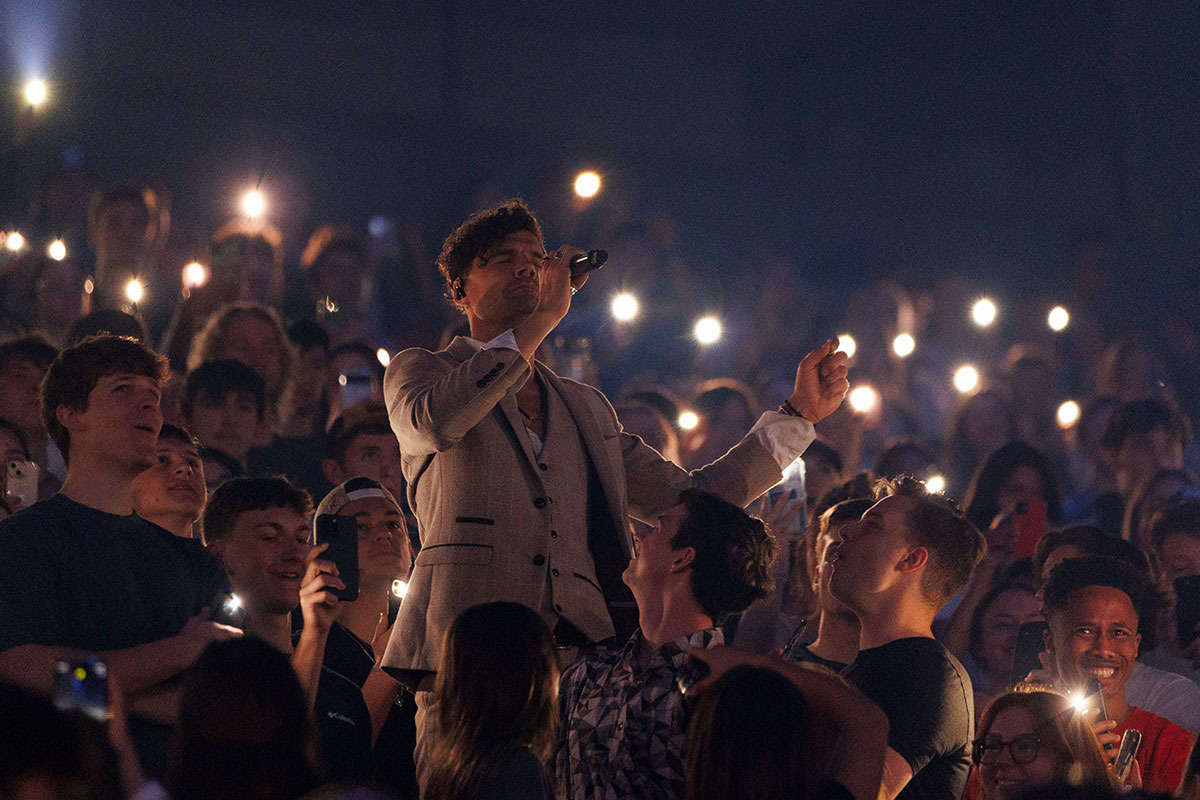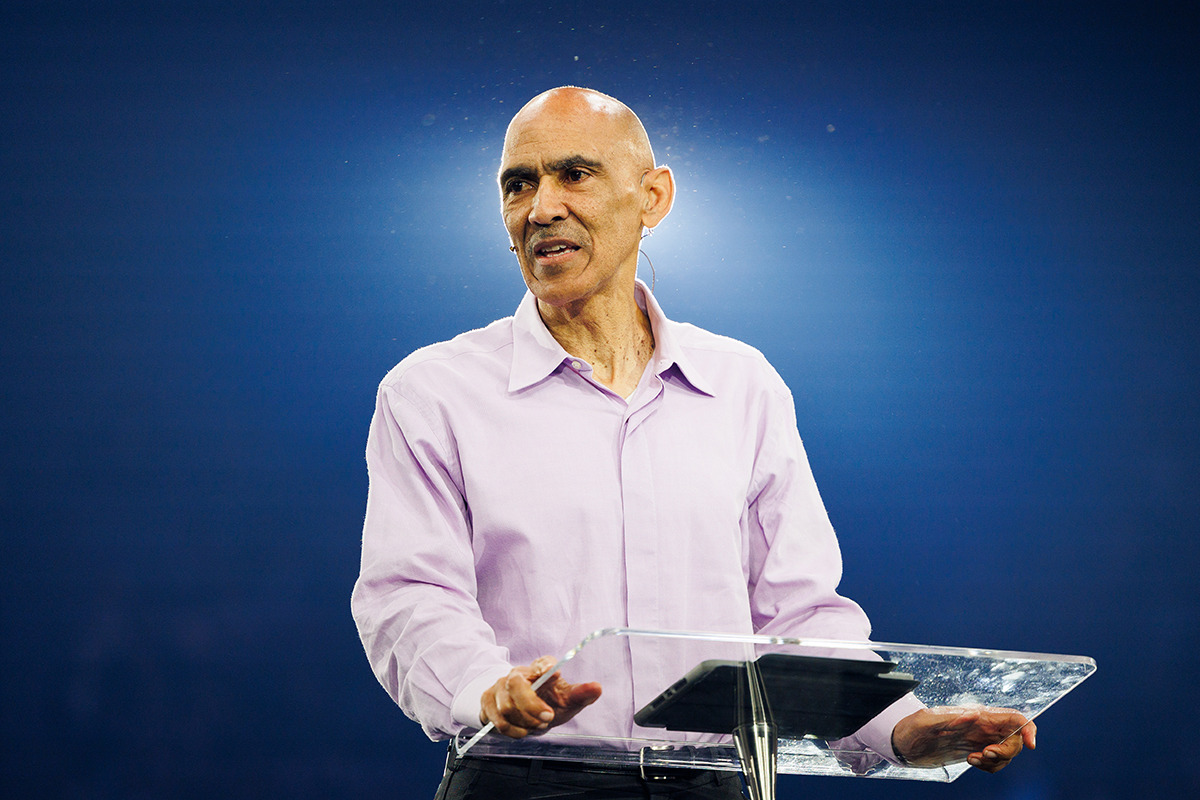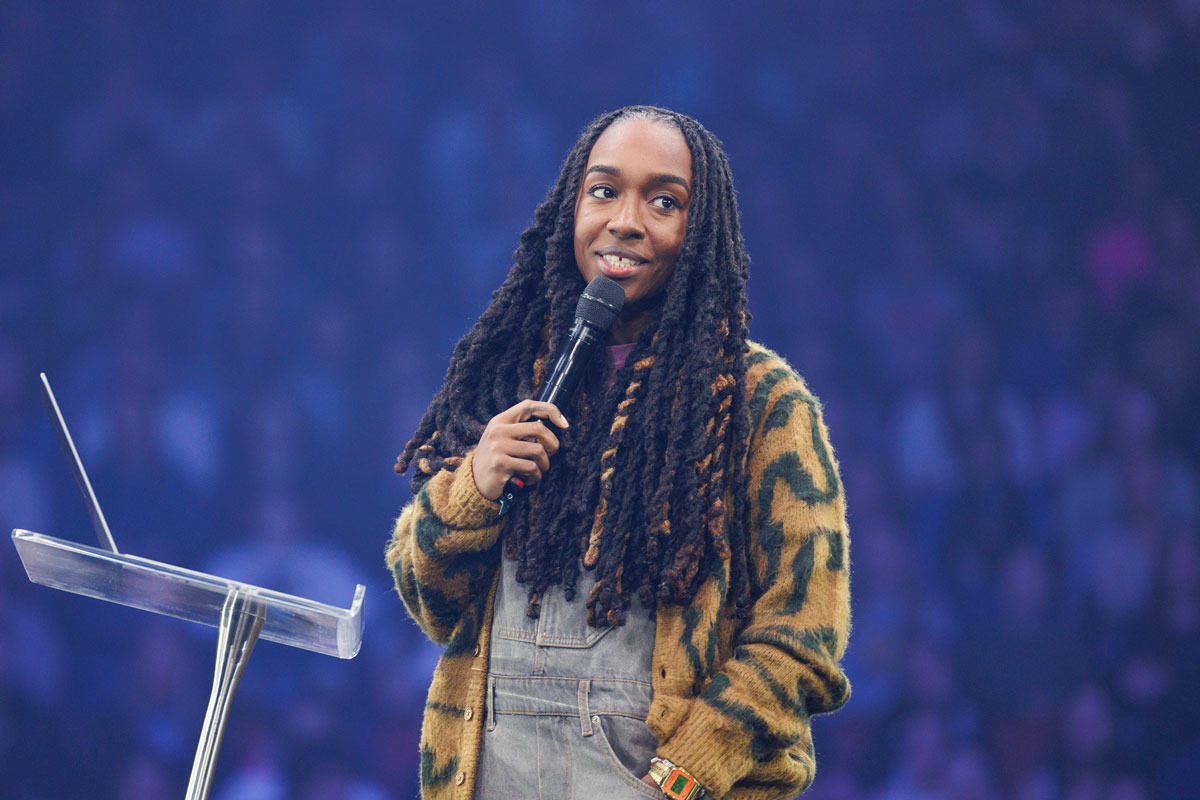Search News Archives
Filter News Articles
Additional Navigation
NYC pastors place prayer in the midst of anxiety at the forefront of discussion on the pandemic’s effects on their city
April 17, 2020 : By Ryan Klinker - Liberty University News Service
Pastors Jon Tyson and Tyler Staton lead separate congregations in the heart of New York City, the new global epicenter of the COVID-19 pandemic, but during Friday’s Convocation at Liberty University, streamed online, they both pointed to the value and power of prayer as their churches deal with the situation.
Liberty’s Senior Vice President for Spiritual Development David Nasser began the event by reminding students of the statistical impact that COVID-19 has caused in New York. Having conducted over 500,000 tests and confirmed 226,000 cases, the state of New York currently has more cases than any country in the world. The United States has experienced 34,000 deaths due to the virus, 16,000 of which have occurred in New York alone.
“It’s heartbreaking that by this point it has become fair to say that New York City is now the world’s epicenter for this virus,” Nasser said. “The numbers and stats can become numbing, and so we have to remind ourselves that each number represents an individual who is valuable to God.”
Tyler Staton, lead pastor of Trinity Grace Church, explained how rapidly his church’s operations in Brooklyn have been affected by the onset of the virus and the ways in which he and his congregation had to adapt to continue in a new routine of not meeting together in a sanctuary.
“We said, ‘Everything we’ve ever built is based around people gathering together. …We have to reinvent how we live as the church together and also how we serve the city without being able to make human contact with the people we’re serving,” Staton said. “It was reinventing an entire ministry philosophy.”

Jon Tyson, lead pastor of Church of the City New York, followed by noting the widespread financial and occupational uncertainty that he has seen in his congregation, which largely consists of single men and women in their 20s who are statistically more likely to be laid off.
“There’s so much uncertainty around people’s employment and vocational calling right now, and I think that’s the number one thing we’ve been seeing in our church,” he said. “It’s a warranted anxiety, not just pointless anxiety, and a legitimate concern about what’s going to happen for people’s futures.”
Nasser brought up another modern tragedy that has occurred in New York City, the September 11 terrorist attacks, and the two community leaders elaborated on the similarities and differences between the two moments in the city’s history that garnered global attention.
“The big difference is that there’s (still) this huge global moment with all the eyes on the city, but when (9/11) happened it was like, ‘We have to come together right now,’” Staton said. “People gathered together and prayed together, and at this moment we can’t be around one another. It feels like the gravity is the same, but we’re scattered and unable to come together.”
“Those who were here for 9/11 have told me that this feels eerily like that same sense of dread that flew through the city,” Tyson added. “I think people feel paralyzed because the human instinct is to connect, to touch, to serve, to hug, and that to me is the hardest component of it.”
Both pastors said they have developed a culture rooted in prayer in their churches over the years, with congregations creating systems where members are praying on a 24-hour basis and encourage each other to lean in to the silent moments and cry out to God throughout the day.
“We pray for scientific breakthroughs, we’re asking for godly leadership that can steward this on a national level, and we’re asking for help on a global stage for people to work together, but our hope is rooted in God acting amongst his people on behalf of the world,” Tyson said.
In a time when many have lost their old routines and distractions, Staton said that today’s Church is experiencing a scenario that mirrors, in some ways, the early Church, which at times operated on the outskirts of society and practiced praying without ceasing.
“This feels to me like a moment when everyone is being driven into the wilderness, whether they want it or not, and all of the crutches that the global Church has learned to rely on that are something less than the power of God are being cut out from under her,” he said. “Every time I read throughout biblical history and church history, there’s so often a massive disruption that then gives way to something really special that God does in the Church.”


